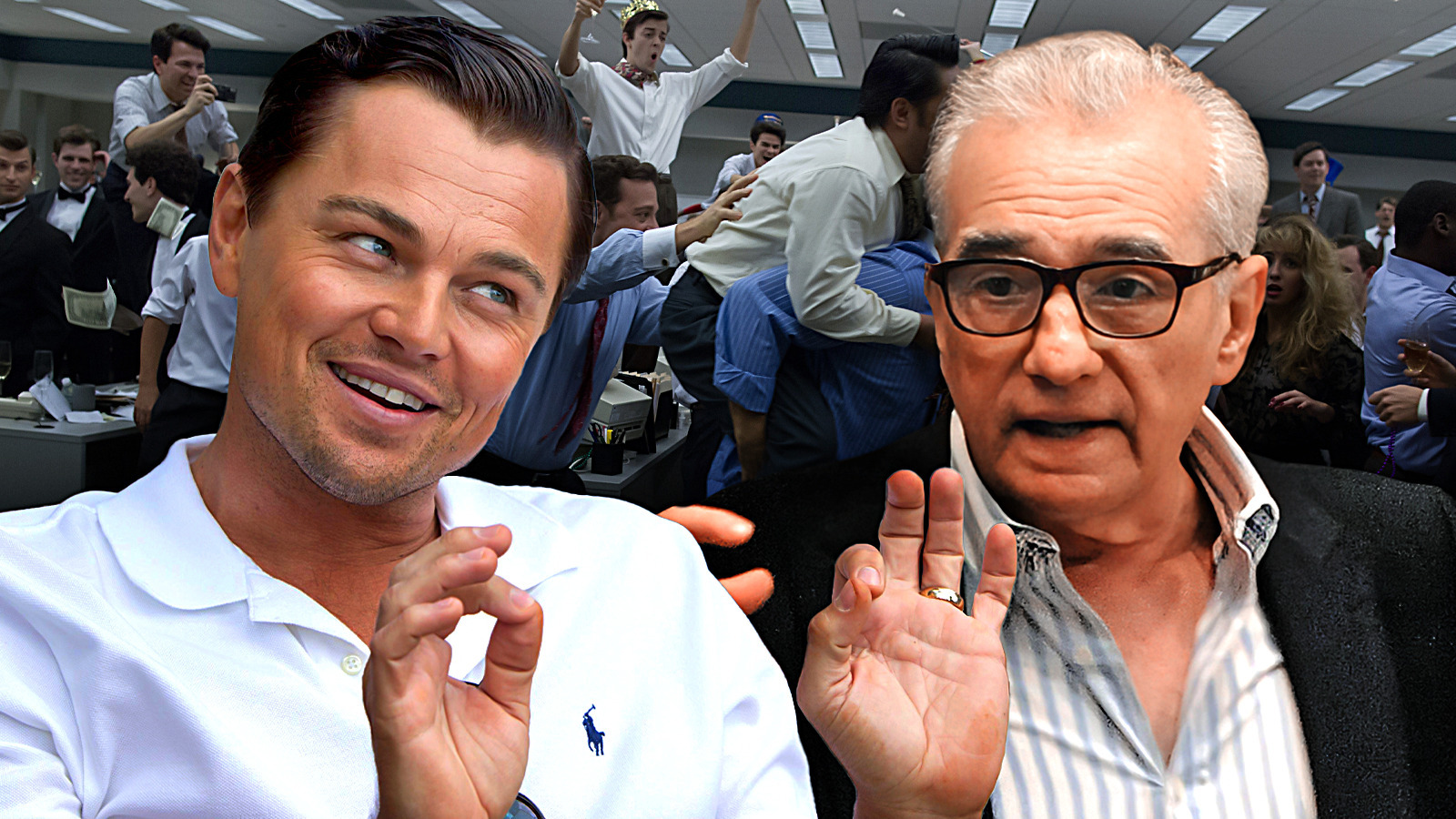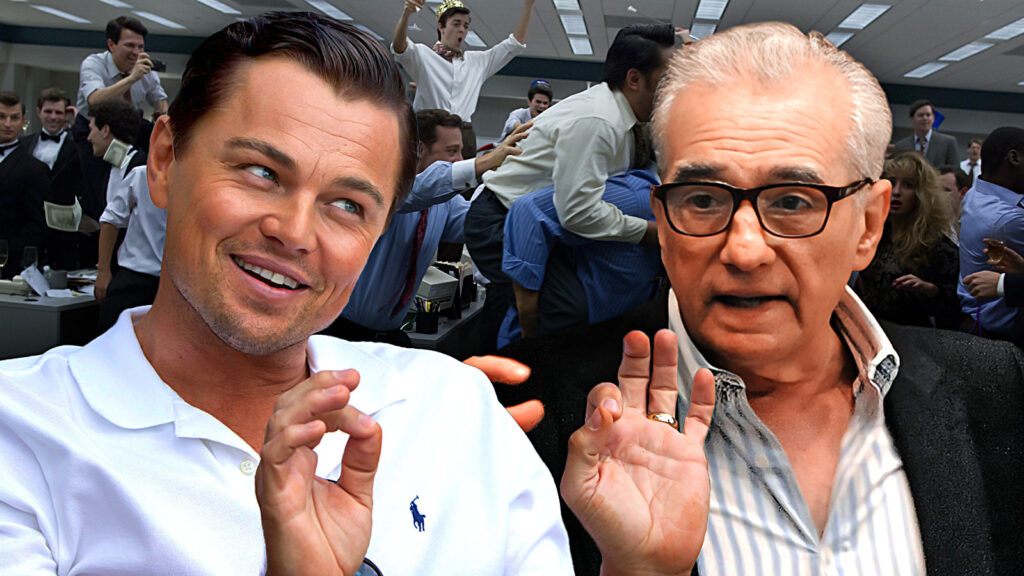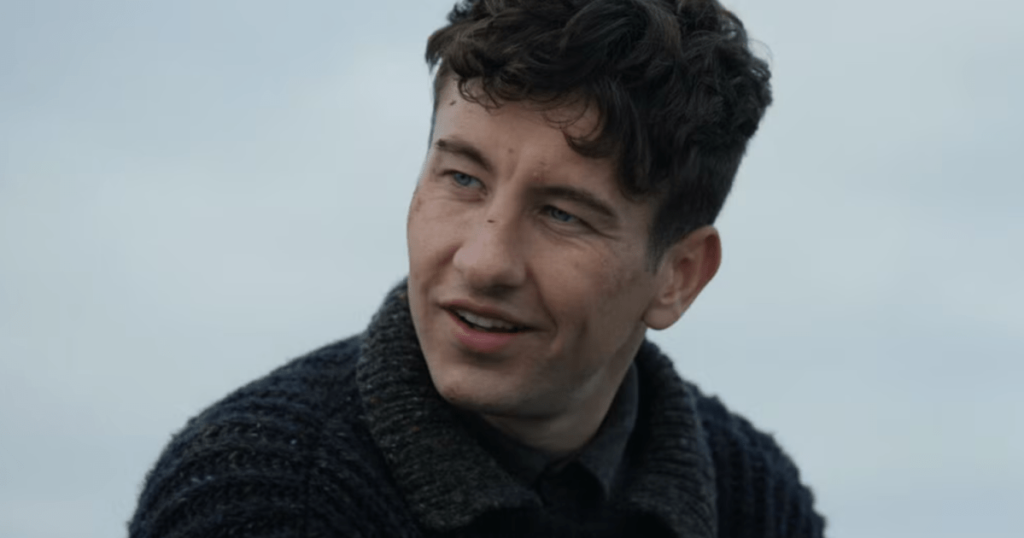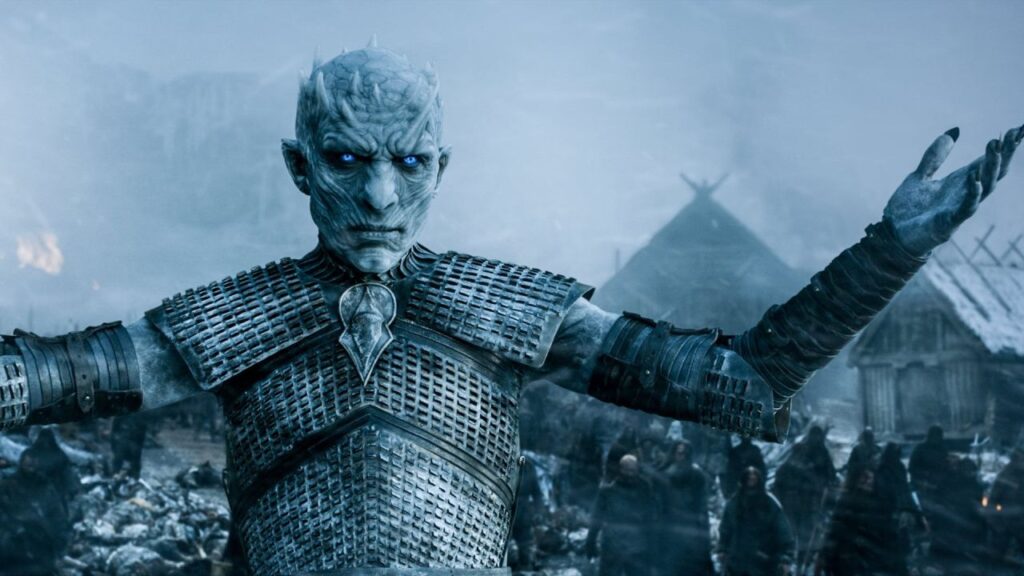
Since 2002, two Hollywood heavyweights have had an illustrious — and productive — working relationship, and cinema as a whole is better off because of it. Martin Scorsese and Leonardo DiCaprio have been working together for decades now, with DiCaprio playing essential roles in some of Scorsese’s best modern films, and what makes their relationship all the more touching is that DiCaprio has publicly revealed that Scorsese’s movie “Taxi Driver” served as a major inspiration for his own acting career. Before these two joined forces, it may have felt borderline impossible to imagine that they’d become one of the most tightly-knit Hollywood duos in cinematic history; while DiCaprio was getting his start in projects like “What’s Eating Gilbert Grape” and “Titanic,” Scorsese was already a directing legend thanks to “Taxi Driver” and other hits like “Mean Streets,” “Raging Bull,” “Goodfellas,” “The Age of Innocence,” and “Casino,” just to name a few. Thanks to “Gangs of New York” in 2002, Scorsese and DiCaprio basically became a dynamic filmmaking team, and the rest is history.
So when it comes to Scorsese and DiCaprio’s working relationship, what do critics think of the six movies they’ve made together based on their Rotten Tomatoes scores? (They’ve technically made seven, but their 2015 short film “The Audition” doesn’t have a Rotten Tomatoes score.) Let’s be clear: None of Scorsese and DiCaprio’s films together are bad by any metric, but critics think some are better than others, so here’s the ranking from least to most beloved.
Shutter Island (69%)
“Shutter Island” is definitely the least straightforward collaboration between Martin Scorsese and Leonardo DiCaprio, largely because of its mind-bending twist, which might explain why it earned the lowest Rotten Tomatoes score of all the pair’s films together. Based on the novel of the same name by Dennis Lehane, DiCaprio plays U.S. Marshal Edward “Teddy” Daniels, who heads to the remote Shutter Island off the coast of Boston with his partner, Chuck Aule (Mark Ruffalo), ostensibly to investigate the disappearance of a patient at Ashcliffe Hospital (an asylum for people suffering from severe mental illness). When Teddy and Chuck get to Ashcliffe, the staff doesn’t particularly want to help them find the patient in question, which might strike you as weird at first … but as the movie progresses, you find out exactly why everything at the asylum feels especially unsettling. (I won’t spoil it here!)
As the lowest-ranking film on this list, “Shutter Island” only has a 69% rating on Rotten Tomatoes — which is still pretty good, to be honest — with a critical consensus that reads, “It may not rank with Scorsese’s best work, but ‘Shutter Island’s’ gleefully unapologetic genre thrills represent the director at his most unrestrained.” A few of those critics had pretty uncharitable readings of the movie; for The Financial Times, Nigel Andrews declared, “Since Scorsese is a stylist, the film is enjoyable. It would be more so if you could take out your brain and experience it only with eyes and ears.” Roger Ebert, though, liked it: “The film’s primary effect is on the senses. Everything is brought together into a disturbing foreshadow of dreadful secrets.”
Gangs of New York (72%)
The first major collaboration between Martin Scorsese and Leonardo DiCaprio is, unfortunately, not one of their most successful outings. Scorsese’s 2002 epic “Gangs of New York” stars DiCaprio as “Amsterdam” Vallon, son of former Irish gang leader “Priest” Vallon (Liam Neeson) who takes up his father’s mantle after Priest is killed by his rival, “Bill the Butcher” Cutting (Daniel Day-Lewis). With the help of an acquaintance named Johnny Sirocco (Henry Thomas), Amsterdam learns that, in the years since his father’s death, Bill has basically overtaken New York and spread anti-Irish sentiment — and just to add insult to injury, Bill throws an annual celebration to commemorate him killing Priest and the death of Priest’s gang, the Dead Rabbits. Naturally, Amsterdam concocts a plot to kill Bill during this event by infiltrating his gang (the Confederation of American Natives), and you’ll have to queue up “Gangs of New York” to see if he succeeds.
The funny thing about “Gangs of New York” is that while it drew uneven praise from critics — it scored a 72% rating on Rotten Tomatoes — they all rushed to compliment Day-Lewis as Bill the Butcher, and to some extent it feels as if DiCaprio’s performance went underappreciated as a result. In fact, for the Denver Post, Steven Rosen said the actor basically saved the film — “Day-Lewis keeps you awake whenever the story loses steam during the film’s 2 hours and 48 minutes” — but once again, the late, great Roger Ebert summed it all up perfectly. “All of this is a triumph for Scorsese, and yet I do not think this film is in the first rank of his masterpieces,” he wrote in his review. “It is very good but not great.”
The Wolf of Wall Street (76%)
“The Wolf of Wall Street” might fall squarely in the middle of the pack here, but there’s one accolade this movie earns pretty handily: It’s the wildest, biggest, and most ridiculously audacious project that Martin Scorsese and Leonardo DiCaprio have made yet. This time, DiCaprio runs the entire show as greedy stockbroker (and real-life figure) Jordan Belfort, who discovers how to game the system while working with dirt-cheap “penny stocks” and eventually forms his own brokerage company where he and his colleagues fleece people out of their money by overestimating the value of the stocks they’re selling. Even with Jonah Hill and Margot Robbie beside him in supporting roles, it’s impossible to look away from DiCaprio as Jordan, who starts the story as a meek, eager young man before becoming an absolute monster fueled by money, drugs, and women. DiCaprio, in my humble opinion, gives one of his all-time best performances as Jordan, a man who gleefully exploits others and cheats on his wife just so he can stay rich — and the pure, unhinged commitment he brings the role should have earned him an Academy Award. (He didn’t win his first-ever Oscar until “The Revenant,” two years after “The Wolf of Wall Street.”)
I will also say that “The Wolf of Wall Street” is really long — frankly, a few of the sequences where Jordan and his debauched buddies do drugs and go berserk could have been axed from the final product — but according to critics, it’s still a success, and it earned a 79% rating on Rotten Tomatoes. As Christopher Orr wrote at The Atlantic, “‘The Wolf of Wall Street’ is a magnificent black comedy: fast, funny, and remarkably filthy,” and over at RogerEbert.com, Matt Zoller Seitz declared that “The Wolf of Wall Street” is “one of the most entertaining films ever made about loathsome men.”
The Aviator (86%)
“The Aviator” puts Leonardo DiCaprio front and center and lets him give one of the most astounding performances of his career — which is really saying something, considering that he’s not even the performer who won an Oscar for the movie. (That would be Cate Blanchett, who won her first-ever statue for playing Katharine Hepburn in the film.) In Martin Scorsese’s 2004 biopic, DiCaprio takes on the challenge of playing Howard Hughes, the film producer and aviation legend who also struggles with obsessive-compulsive disorder and other mental difficulties that end up taking over his life as he ages. DiCaprio is also given the extremely difficult task of playing Hughes across decades, depicting him both as an ambitious young genius and a troubled middle-aged man who refuses to exist in the world unless he’s wearing a germ-resistant suit. Naturally, DiCaprio is phenomenal at depicting Hughes’ descent into devastating madness, which is probably why he picked up an Academy Award nomination for the role.
With an 86% rating on Rotten Tomatoes and a critical consensus that says the film “succeeds thanks to typically assured direction from Martin Scorsese and a strong performance from Leonardo DiCaprio, who charts Howard Hughes’ descent from eccentric billionaire to reclusive madman,” it’s safe to say that “The Aviator” is a particularly special collaboration between the actor and director. Some critics still had misgivings — for Time Magazine, Richard Corliss wrote that “this handsome movie is an oddly well-behaved one to come from the preternaturally energetic Scorsese” — but many, like Paul Clinton at CNN, praised Scorsese’s vision and DiCaprio’s performance: “‘The Aviator’ is the perfect melding of talent and material.”
If you or someone you know needs help with mental health, please contact the Crisis Text Line by texting HOME to 741741, call the National Alliance on Mental Illness helpline at 1-800-950-NAMI (6264), or visit the National Institute of Mental Health website.
The Departed (91%)
There’s no question that “The Departed” is one of Martin Scorsese’s best movies, but the interesting thing here is that Leonardo DiCaprio takes a little bit of a backseat to two other powerhouse performers in the movie (Matt Damon and Jack Nicholson). A loose adaptation of the Hong Kong mob movie “Infernal Affairs,” Scorsese’s 2006 epic casts DiCaprio as William “Billy” Costigan Jr., a police academy recruit tasked with an undercover assignment surrounding infamous mob boss Frank Costello (Nicholson). Luckily for Billy, he makes his way into Frank’s inner circle before long, but what he doesn’t know is that Massachusetts State Police staff sergeant Colin Sullivan (Damon) is in Frank’s pocket, working as a mole for the deeply dangerous man. Eventually, both the cops and the mob realize they’ve got moles lurking around, and it’s a race to the finish between Colin and Billy as they try to uncover each others’ identities.
“The Departed” is an unequivocal masterpiece — it did win Best Picture and Best Director for Scorsese at the 2007 Academy Awards — which is why critics came together to praise it and give it a 91% rating on Rotten Tomatoes. For NPR, Bob Mondello succinctly wrote, “This crime thriller is a profane, blood-drenched joy to watch,” while Peter Sullivan at the Guardian declared, “Martin Scorsese has got his groove back.” Whether you’ve seen “The Departed” a hundred times or are just sitting down for your first watch, you’ll likely find you agree with these critics, and its ranking on this list.
Killers of the Flower Moon (93%)
Based on David Grann’s 2017 nonfiction book about the savage murders of Native Americans belonging to the Osage tribe after oil was discovered in their land during the 1920s, Martin Scorsese’s 2023 historical epic “Killers of the Flower Moon” certainly proved to fans and critics alike that the venerable director’s still “got it” (in spades, actually). Leonardo DiCaprio seems a little miscast at first — his Ernest Burkhardt has just returned from World War I and probably should be a bit younger, but whatever — but he ends up delivering a magnificent performance as an unintelligent, easily manipulated, and inherently evil man who seduces and marries an Osage woman named Mollie Kyle (an indomitable Lily Gladstone, who all but steals the movie from both DiCaprio and his co-star Robert De Niro). After marrying Mollie, Ernest and his sinister, conniving uncle William King Hale (De Niro) steadily pick off Mollie’s family members in an effort to steal their land and precious oil, all as Mollie’s health deteriorates and Ernest tries to grapple with everything he’s done to a wife that he does actually love.
“Killers of the Flower Moon” earned a nomination for Best Picture at the 2024 Oscars ceremony and a 93% rating on Rotten Tomatoes, and critics were quite clear: Scorsese made yet another masterpiece. “Telling the story of the mass murder of the Osage Nation, Martin Scorsese wrestles with himself, Hollywood as a whole, and the original sin of America itself,” Adam Nayman wrote for The Ringer, and Manohla Dargis of The New York Times declared, “For his telling, Scorsese has drawn on assorted genres — the movie is at once a romance, a western, a domestic drama, a whodunit and, finally, a police procedural — that effortlessly mix, ebb and flow.” So there you have it: According to reviews, “Killers of the Flower Moon” is Scorsese’s best movie (by two percentage points, at least).


